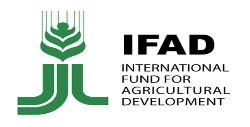
The evaluation report confirmed that IFAD-supported projects have achieved significant results in building grass-roots institutions, empowering women and improving the lives of tribal communities in India. More specifically, the report said projects have contributed to mobilizing communities and developing basic community infrastructure, as well as developing agricultural production and improving rural livelihoods, the use of national resources, and access to credit and financial services.
“IFAD has been working in India for more than 30 years and I am pleased to see that many of the innovative approaches in the projects we support have been scaled up by state governments so that millions of rural people across the country can be lifted out of poverty,” said Josefina Stubbs, IFAD’s Associate Vice-President and Chief Development Strategist.
Among the projects evaluated, the Odisha Tribal Empowerment and Livelihoods Programme was said to be effective in facilitating the implementation of existing laws on tribal groups’ access to forests, including the 2006 Forest Rights Act. These laws uphold traditional tribal rights to forest occupancy and use, which were challenged by earlier regulations. The project facilitated access to forest and agricultural land for almost 27,000 tribal households.
Progress was also identified in promoting gender equality and women’s empowerment. Women’s self-help groups, for example, facilitated economic change in the project areas. The report noted that many women undertook income-generating activities including horticulture, animal husbandry and cereal production. The Tejaswini Rural Women’s Empowerment in Madhya Pradesh was cited for tackling the issue of violence against women and was so successful that the Government of Madhya Pradesh replicated it across the state.
The evaluation report confirmed the need to continue giving priority to disadvantaged areas and groups. According to Oscar A. Garcia, Director, Independent Office of Evaluation, IFAD, “In the future, project design, the mix of components and the level of specialization will need to be better differentiated and adapted to the target groups and agro-ecological areas. The traditional ‘self-help group’ model will continue to be relevant for areas where basic needs are still the priority. In areas where farmers are already experiencing a surplus in production, projects should focus more on commercialization of smallholder agriculture.”
Since 1979, IFAD has invested more than US$928 million in 27 programmes and projects in India, with a total cost of $2.6 billion when cofinancing is included, directly benefitting 4.4 million households.
Corporate Comm India (CCI Newswire)



























